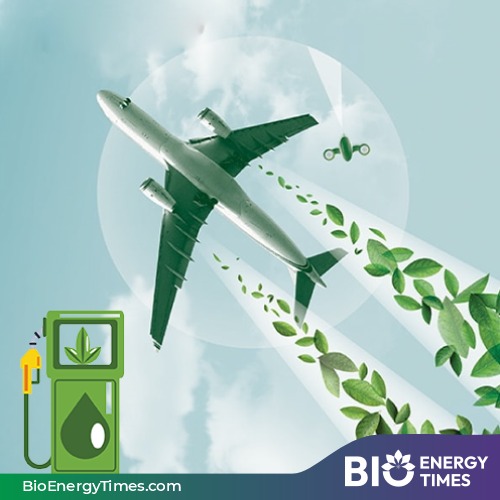The country is at the threshold of an energy revolution, which is aimed at securing a clean and green future. The feedstock which is the source of this new-age energy revolution is extracted from staple agricultural produce, garbage waste etc. The impetus on green energy has opened a wide variety of choices- Ethanol Blended petrol fuel, green hydrogen, Compressed Natural Gas, Sustainable Aviation Fuel (SAF) etc.
It’s a notion that might have seemed inconceivable just half a decade ago – the idea that fuel derived from sugarcane or discarded waste could power an entire aviation fleet. Yet, thanks to the proactive approach and innovative thinking of both the Government and entrepreneurs, the reality of planes flying on SAF is imminent.
The first steps towards decarbonising the aviation sector have already been initiated when the first commercial passenger flight using indigenously produced Sustainable Aviation Fuel (SAF) blend was successfully flown in 2023. An Air Asia flight flew from Pune to Delhi powered by SAF blended aviation turbine fuel (ATF).
Speaking on the occasion, Minister of Petroleum and Natural Gas, Hardeep Singh Puri said, “By 2025, if we target to blend 1% SAF blending in Jet fuel, India would require around 14 crore litre of SAF/annum. More ambitiously, if we target for 5% SAF blend, India requires around 70 crore litre of SAF/ annum”.
SAF, distinguished from traditional jet fuels, is derived from renewable sources such as agricultural waste, municipal solid waste, and forestry residues. Its potential to slash greenhouse gas emissions by up to 80% compared to conventional jet fuel is a game-changer in the pursuit of sustainability.
On the international front, the International Civil Aviation Organisation (ICAO) launched the Carbon Offsetting & Reduction Scheme for Aviation (CORSIA) to curb emissions from international aviation, necessitating the offsetting of emissions above a baseline value. This scheme is envisaged in three phases: the voluntary pilot phase (2021-2023) and first phase (2024-2026), followed by the mandatory second phase (2027-2035) for all member states.
While the Indian Government opted out of the voluntary phases of CORSIA, offsetting requirements for Indian carriers are set to commence from 2027. Airlines can meet these requirements by either utilising SAF or offsetting their emissions through the purchase of carbon credits from ICAO-approved Emissions Unit Programmes.
The sugar industry can play a pivotal role in production of SAF, however it needs some sound policy interventions. Ravi Gupta, Executive Director at Shree Renuka Sugars feels that India holds a distinct edge over other nations and stands as a pioneering force in embracing cutting-edge green energy initiatives. “Achieving the ethanol blending program and its necessary infrastructure development in just five years showcases our commitment. We’ve initiated the production of eco-friendly products like CGB from press mud, municipal waste, as well as fertilisers from molasses”, he said.
Emphasising the need of a National Policy to support SAF that will serve as a pivotal step, and ensure a secure foundation for the growth and production of this environmentally friendly aviation fuel. Gupta said “Given the abundant feedstock available, India has the potential to lead in Sustainable Aviation Fuel (SAF) production. However, realising this potential requires substantial investment in new infrastructure. To facilitate this, a steadfast commitment to competitive pricing and a guaranteed market for SAF from the sugar industry and other stakeholders is essential. While CORSIA provides a clear mandate for SAF, sustained investments and long-term commitments are vital for the sugar industry to embrace SAF production”.















